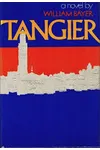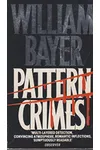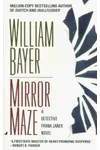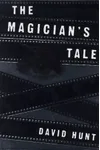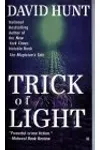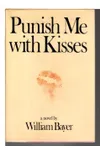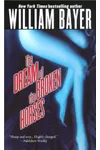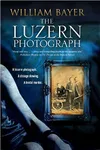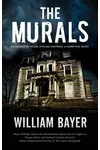Picture an American storyteller who turned the streets of New York into a thrilling stage for suspense—meet William Bayer! This master of crime fiction hooked readers with his Edgar Award-winning novel Peregrine and the unforgettable Frank Janek series. With a knack for psychological depth and neo-noir vibes, Bayer’s tales of obsession and mystery have captivated audiences worldwide.
Born in Cleveland, Ohio, in 1939, Bayer’s life is as layered as his novels. From diplomatic service to filmmaking, his diverse experiences shaped his gripping narratives, blending art, psychology, and crime into stories that linger long after the last page.
The Making of William Bayer
William Bayer’s journey to literary stardom began in Cleveland, where he was born to an attorney father and screenwriter mother, Eleanor Perry. Educated at Phillips Exeter and Harvard, where he majored in art history, Bayer’s early fascination with visual storytelling—evident in his thesis on a Paul Gauguin painting—set the stage for his vivid prose. After serving six years as an officer with the U.S. Information Agency in Washington, Vietnam, and New York, he dabbled in filmmaking, directing the 1971 feature Mississippi Summer, which won a Best First Feature Award at the Chicago International Film Festival. This creative spark led him to writing, where he found his true calling in crime fiction.
William Bayer’s Unforgettable Stories
Bayer’s novels are a masterclass in psychological crime fiction, often described as neo-noir for their dark, atmospheric settings and complex characters. His breakout, Peregrine (1981), introduced NYPD detective Frank Janek, a sensitive sleuth who repairs accordions in his spare time. The novel’s chilling premise—a peregrine falcon trained to kill in New York City—earned the 1982 Edgar Award for Best Novel. Switch (1984), a New York Times bestseller, upped the ante with a gruesome double murder where the victims’ heads are swapped, showcasing Bayer’s knack for shocking yet intricate plots.
The Magician’s Tale (1997), written under the pseudonym David Hunt, won the Lambda Literary Award for Best Mystery, exploring San Francisco’s gritty underbelly through a colorblind photographer’s lens. The Dream of the Broken Horses (2002) blended forensic art and a Midwestern murder mystery, earning France’s Prix Mystère de la Critique. Bayer’s shift to first-person narrators in later works added intimacy, while recurring themes—psycho-eroticism, photography, and obsessive quests—reflect his fascination with the human psyche.
His Janek series, including Wallflower and Mirror Maze, became a cultural touchstone, adapted into seven CBS television movies starring Richard Crenna as Janek. Bayer’s ability to weave rich settings, from Tangier to Jerusalem, with taut suspense has made his work a global hit, translated into 14 languages.
Why William Bayer Matters
William Bayer’s impact on crime fiction lies in his ability to elevate the genre beyond mere whodunits. His novels delve into the psychological motivations of both hunters and the hunted, offering readers a mirror to their own complexities. Critics, like Seymour Krim in The Washington Post, praised Bayer’s “electric” prose, comparing him to Dashiell Hammett for blending literary depth with thriller pacing. His influence endures in the neo-noir movement, inspiring writers to explore the shadows of human nature.
Bayer’s legacy also shines through his versatility—novelist, filmmaker, and art enthusiast—making him a storyteller who transcends genre. His 2020 novel The Murals was shortlisted for the Dashiell Hammett Prize, proving his relevance decades after his debut.
- Born: February 20, 1939, Cleveland, Ohio
- Key Works: Peregrine, Switch, The Magician’s Tale, The Dream of the Broken Horses
- Awards: 1982 Edgar Award, 1998 Lambda Literary Award, 2005 Prix Mystère de la Critique
Snag Peregrine and dive into William Bayer’s thrilling world of suspense—your next obsession awaits!
